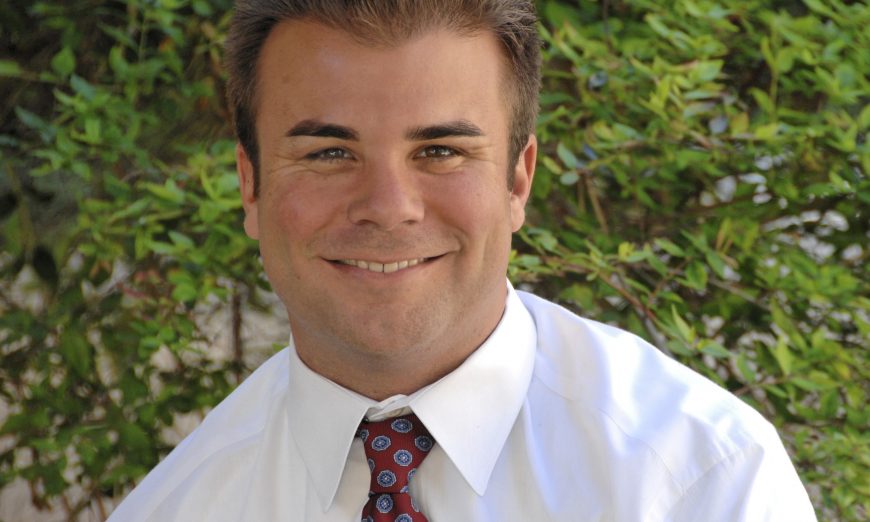

A former Santa Clara City Council member has settled with the California Fair Political Practices Commission (FPPC), allowing him to pay substantially less in fines for using his campaign as a slush fund.
Dominic Caserta sat on the council until his resignation in 2018. At the time, Caserta was running for a seat on the Santa Clara County Board of Supervisors. A slew of allegations, some of which were sexual, surfaced, causing him to withdraw from the race.
At its last meeting in August, the FPPC was set to fine Caserta $65,000, but reduced the fine to $22,500 at its most recent meeting Oct. 17.
James Lindsey, chief enforcement officer for the FPPC, said the 13 counts against Caserta penalized him for both the misuse of campaign money and surplus money, resulting in the doubling or sometimes tripling of the fine by counting each instance multiple times.
In a settlement, the FPPC agreed to count each unique instance, substantially reducing the fine.
When Caserta pulled the plug on his supervisorial vye, his campaign account had $195,368 in surplus campaign money, according to the settlement attached to the FPPC agenda.
According to those documents, “ … the funds remaining in the account were expended in a manner that was not consistent with the requirements … for lawful use of those funds.”
Caserta made eight payments totaling $10,855 to Guaranteed Removals to polish his reputation, removing negative content about him from the internet.
According to the settlement, Caserta claimed the expenditure was campaign-related since, had he not been a political candidate, he wouldn’t have needed the company’s services. But, the FPPC disagreed, saying that since he had already withdrawn from the race, he did not benefit from the services as a politico.
“These payments conferred a substantial personal benefit to Caserta and the payments were not directly related to a political, legislative, or governmental purpose,” according to the settlement.
In addition to the spin-doctor payments, Caserta also paid campaign volunteers and his wife at the time “bonuses.” In an attempt to obfuscate one payment, Caserta reported paying his attorney, Jim Sutton of the Sutton Law Firm, a $1,875 bonus but only actually paid him $245, giving the balance to a campaign volunteer.
Three payments made to a second volunteer totaled $19,900, and another three payments to Caserta’s former wife, supposedly the treasurer of his campaign, totaled $18,450.
When asked to prove the legitimacy of the $40,090 in “bonuses,” Caserta responded that no records existed. His attorney contended that such records did not exist because the recipients were volunteers, not employees.
“If the payments were not payments made in consideration for services negotiated and rendered but were payments made in gratitude to a campaign volunteer, the payments are better characterized as a gift … campaign funds shall not be used to make personal gifts unless that gift is directly related to a political, legislative, or governmental purpose,” according to the settlement.
The payments came more than a year after Caserta withdrew. He failed to justify the totals and, again, attempted to hide them on his campaign statements as payments made to Guaranteed Removals.
Finally, Caserta charged $13,771 to his campaign to buy sports memorabilia. Caserta claims he did not disclose the purchases because they were a mistake and that he “over-reimbursed” the campaign.
Rather than accept responsibility, Caserta maintained his skulduggery was unintentional. He blamed his subterfuge on a “poor state of mind” due to a contentious divorce, the death of his political career, getting fired and his employer, Santa Clara Unified School District, leaking his personal information.
“The allegations and release of the personnel file led to or were related to some of the improper expenditures at issue and are, therefore, relevant to this matter,” according to the settlement. “According to Caserta, the release of the confidential personnel file caused severe personal and professional stress which impaired his judgment during the applicable period here.”
FPPC fines go into California’s general fund.
Catherine Baker, a FPPC board member, said she was satisfied with the settlement.
“I think it is an example of how long a matter may take if you have a lack of cooperation, which wasn’t so much a matter here, or poor record keeping,” she said.
Bay Area artist Nathan Oliveira (1928-2010) described himself as an abstract artist whose work had…
The California Highway Patrol's so-called "surge" operations in Oakland have netted nearly 400 arrests so…
James Williams wasn’t just Santa Clara’s first African American citizen and one of the first…
Can you spell deja vu? The battle over the best way to teach children how…
A new Sunnyvale rideshare shuttle will make it easier to get around the city’s Peery…
Former city council member and long-time active member of the Santa Clara community, Debi Davis, passed…